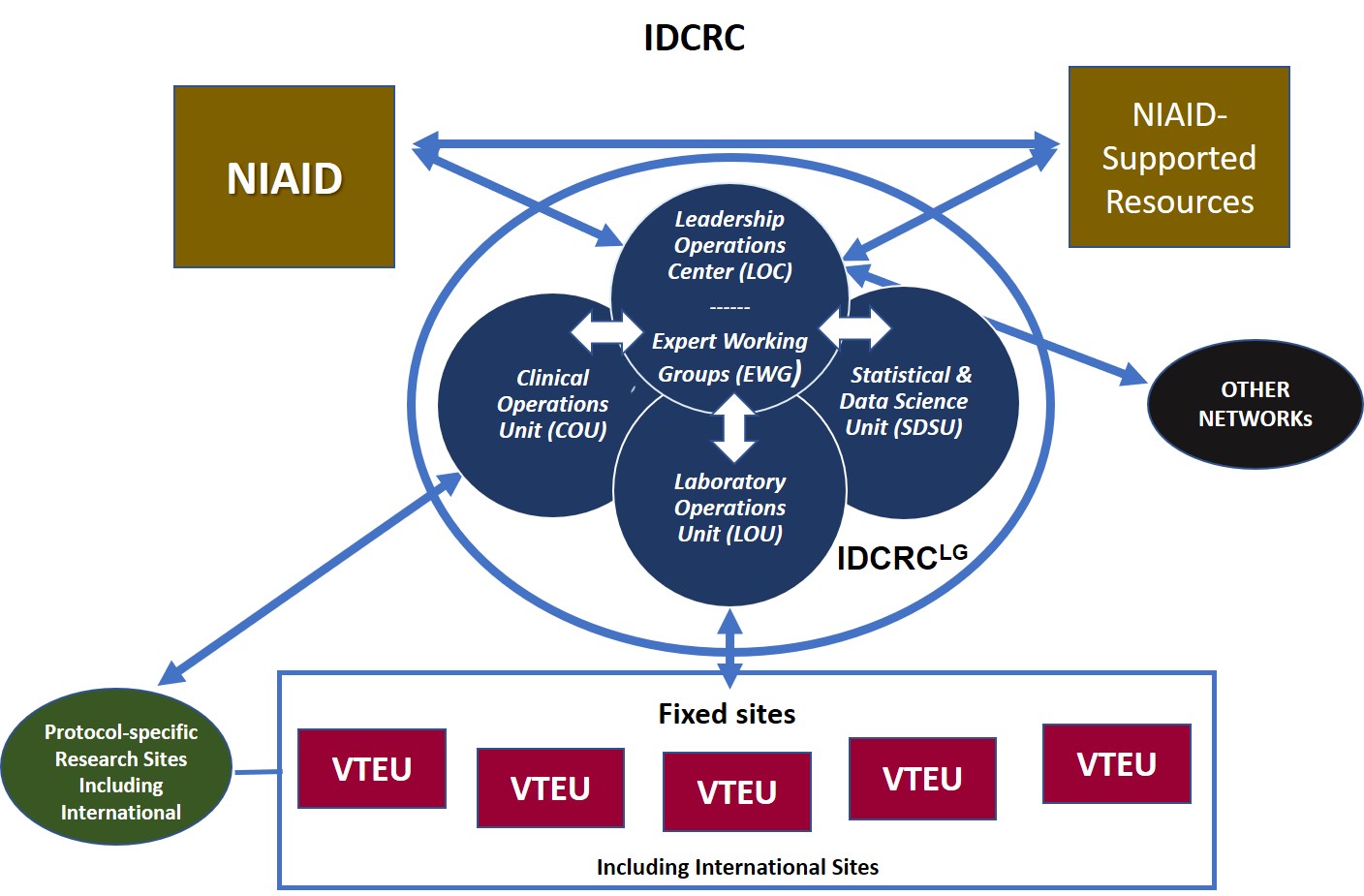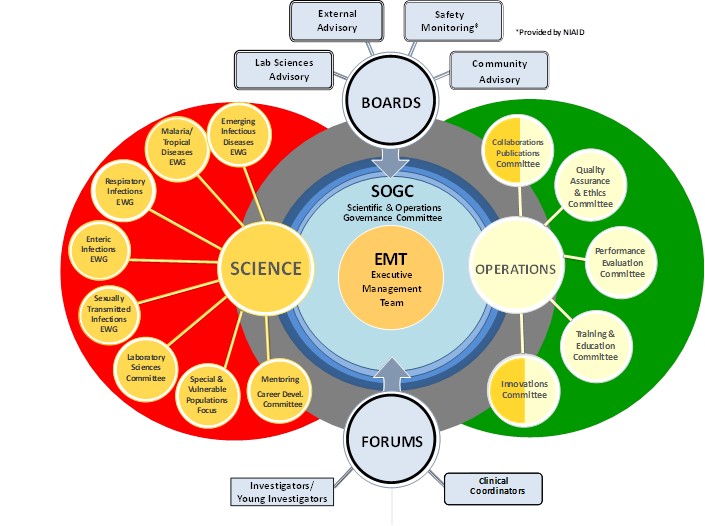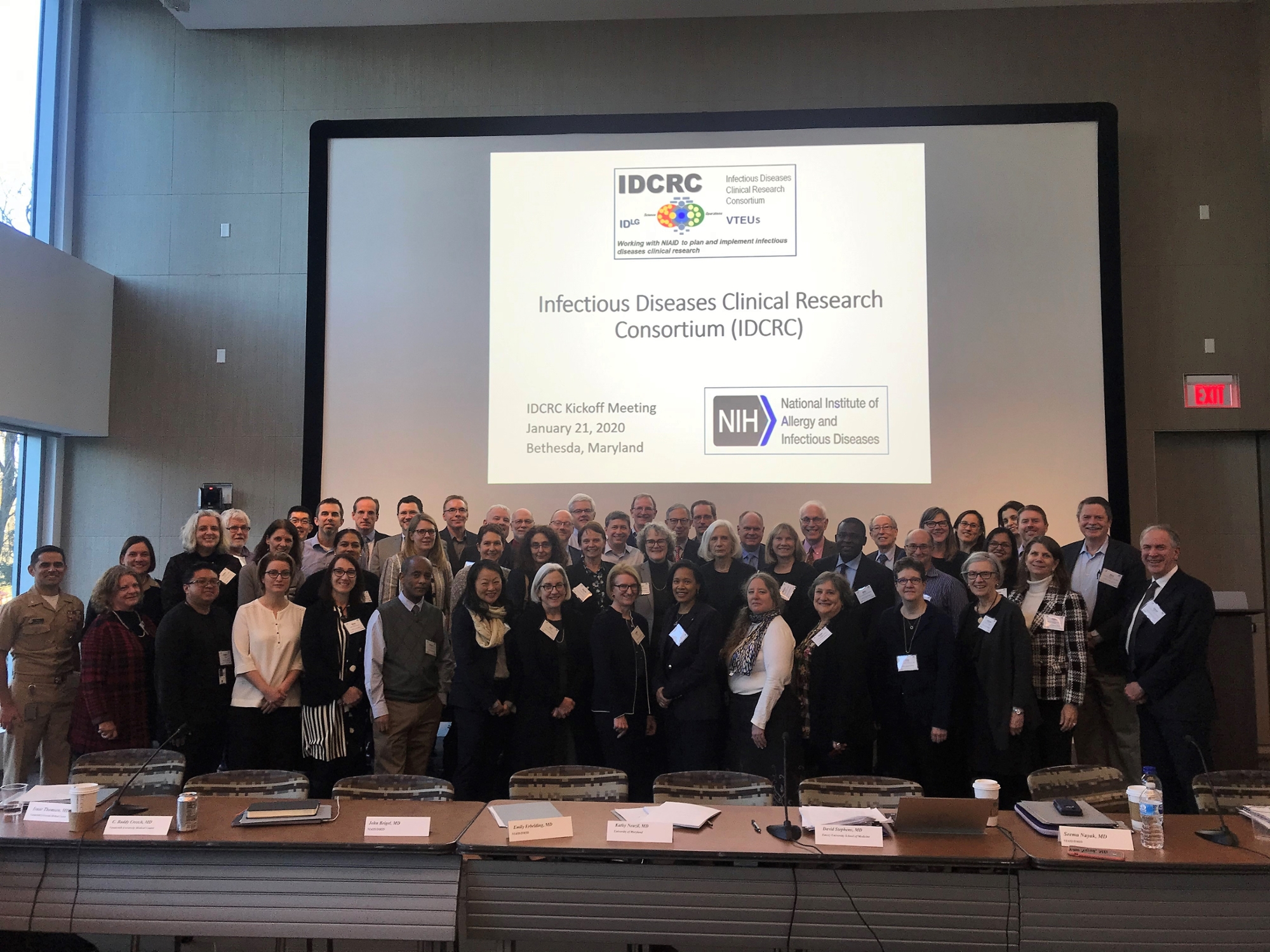Key Functions
- review and prioritize innovative concepts,
- enhance integration and efficiency in operations (e.g. single-IRB system, master contracting agreements, evidence-based strategies to recruit and engage patients, “LEAN” processes),
- increase collaborations (e.g. novel product development partnerships),
- plan and facilitate protocol implementation,
- promote the integration of special and underserved populations in IDCRC research across the human lifespan,
- engage the next generation of scientists in infectious disease research,
- evaluate ongoing studies, and
- help assure the capacity of the IDCRC to respond rapidly to newly emerging infectious disease threats.
A key activity is working collaboratively and coordinating with NIAID. There are strong liaisons at all levels to facilitate strategic priority setting, work with NIAID contractors and other important interfaces.
The IDCRC is functionally and administratively divided into Units, Committees and Working Groups, emphasizing a functional specialized infrastructure that encompasses the work defined under all areas as a unified program. We are supported by an administrative and financial team that ensures maximal efficiency, and financial stewardship.
The IDCRC organizational structure supporting the science and operations is composed of the Leadership Operations Center (LOC) including the Expert Working Groups, the Clinical Operations Unit (COU), the Laboratory Operations Unit (LOU) and the Statistical and Data Science Unit (SDSU).




